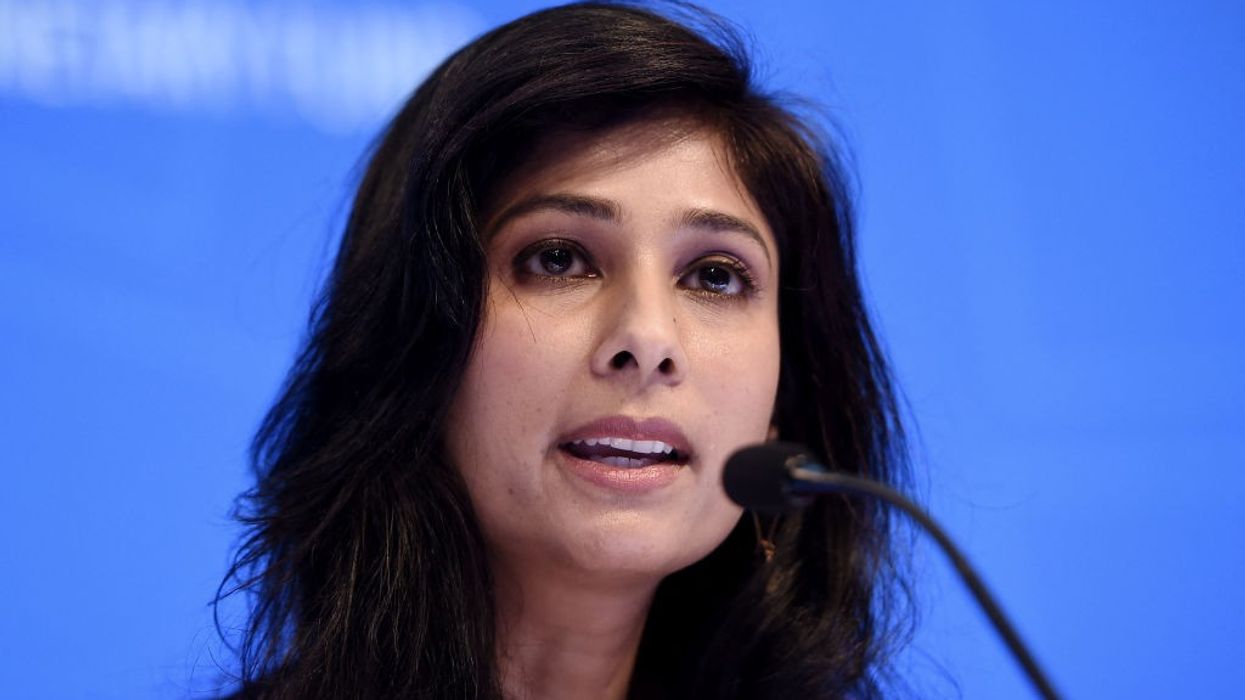GITA GOPINATH will take on a larger role in shaping the policies of the International Monetary Fund (IMF) from January 21 as its first deputy managing director.
Her elevation as the second-ranking official of the global lender is a recognition of her “exceptional intellectual leadership” as its first woman chief economist.
Born in a Malayali-speaking family in the eastern Indian city of Kolkata (formerly Calcutta) in 1971, she did her schooling in Mysore, a city about 150 km (93 miles) from Bangalore, the capital of Karnataka.
According to her, she is an “accidental economist”. She signed up for a three-year degree in economics because she was told it would help her become a bureaucrat.
But India’s economic liberalisation after it came out of its balance of payment crisis in 1991 with a lifeline from IMF had a transformative impact on the country and the turn of events made her pursue a career in economics.
Gopinath graduated in arts from Lady Shri Ram College for Women in Delhi in 1992 and obtained her master’s degree in economics from Delhi School of Economics two years later.
She continued her education in the US and received her MA degree at the University of Washington in 1996, followed by a PhD in economics from Princeton University in 2001; she was also awarded the Woodrow Wilson Fellowship Research Award.
Before joining the IMF, Gopinath, now a US national, worked in various capacities to contribute to the macroeconomic policies of both America and India.
She was a visiting scholar at the Federal Reserve Bank of Boston and a member of the economic advisory panel of the Federal Reserve Bank of New York.
From 2016 to 2018, she was the economic adviser to the chief minister of the south Indian state of Kerala and served as a member of the Eminent Persons Advisory Group on G-20 Matters for India’s federal ministry of finance.
Gopinath joined Harvard University's faculty in 2005, having served as an assistant professor of economics at the University of Chicago’s Booth School of Business.
Her understanding of macroeconomics won her wide recognition. In 2014, IMF named her one of the top 25 economists under 45, three years after the World Economic Forum chose her as a Young Global Leader in 2011.
On her favourite part of the job at the IMF, Gopinath said she gets to work on and learn about 190 countries.
“This means that policy advice must be tailored to the unique circumstances of countries, and I am learning so much about how different economies work”, she told Princeton Economics last year.
“I like how economics can help make the world a better place. Every major issue, be it jobs, inequality, poverty or climate change, cannot be tackled without insights from economics... Economics is about the real world and how people make decisions. Figuring this out can be highly challenging.”
Gopinath, 49, is widely quoted by business leaders worldwide, in a reflection of her influence not just within the Washington-based IMF, but outside.
Previously, her comments on the demonetisation of high-value banknotes by India's prime minister Narendra Modi caused controversy in the country of her birth.
“I don’t think I know a single macroeconomist who thinks that this (demonetisation) was a good idea. And, it’s not something I think should be done for a country such as India and the level of development it has. Japan has the highest cash per capita, way more than India. The cash in circulation, relative to the gross domestic product for India was 10 per cent, whereas in Japan it is 60 per cent. That is not black money; that is not corruption,” she said in an interview published by the Business Standard in 2018.
Gopinath, an overseas citizen of India, is married to Iqbal Singh Dhaliwal, a former Indian administrative service officer who is now the global executive director at Abdul Latif Jameel Poverty Action Lab of Massachusetts Institute of Technology’s department of economics.




